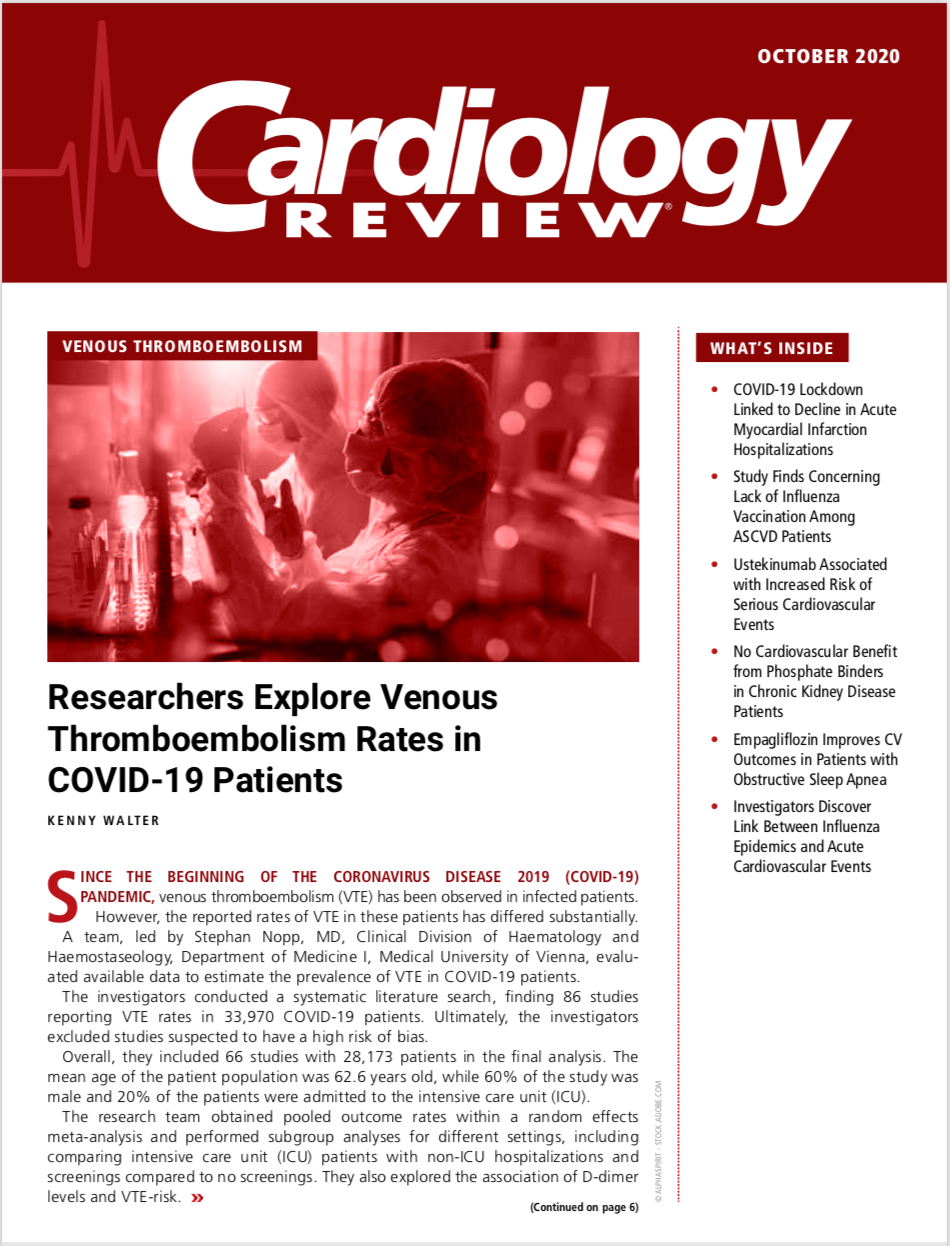Publication
Article
Cardiology Review® Online
Empagliflozin Improves CV Outcomes in Patients with Obstructive Sleep Apnea
Author(s):
Investigators report on a post-hoc analysis of the EMPA-REG OUTCOME trial that assesses the efficacy of the SGLT-2 inhibitor in patients with obstructive sleep apnea.
Henry Yaggi, MD, MPH

Patients with obstructive sleep apnea (OSA) who were treated with emagliflozin demonstrated similar improvements in cardiovascular (CV), hospitalization from heart failure, and mortality outcomes in comparison with non-OSA patients with CV disease and type 2 diabetes, according to data presented at the European Society of Cardiology (ESC 2020) Congress.
A post-hoc exploratory analysis of the EMPA-REG OUTCOME trial led by Henry Yaggi, MD, MPH, Associate Professor of Medicine at Yale School of Medicine, compared the incidence rates of various CV events in patients with and without OSA. Furthermore, they assessed the treatment effect of empagliflozin.
The EMPA-REG OUTCOME trial was a randomized placebo-controlled trial that included 7020 patients from 42 countries with type 2 diabetes, cardiovascular disease, and an estimated glomerular filtration rate of >30 mL/min/1.73 m2.
The investigators then randomized patients 1:1:1 to receive 10 mg of empagliflozin, 25 mg of empagliflozin, or placebo once daily—in addition to their standard of care.
The findings from the study showed that the SGLT-2 inhibitor reduced HbA1C, systolic blood pressure (SBP), and waist circumference and weight in patients. Furthermore, it had reduced the risk of 3-point major adverse CV events by 14%, CV death by 38%, and hospitalization due to failure by 35%.
For their analysis, Yaggi and team assessed OSA based on investigator reports using MedDRA 18.0. They used adjusted event-rates per 100 patient-years to report incidence rates for outcomes.
Cox regression models were then performed to analyze the effects.
They then found that OSA occurred in 391 patients (5.6% [placebo, 5.4% and empagliflozin, 5.7%]).
The OSA population had a higher frequency of males than the non-OSA population (82.9% vs 70.8%), had a greater prevalence of obesity (BMI ≥ 35 kg/m2: 55.2% vs 18.2%), and more coronary artery disease (88.0 vs 74.9%).
They also discovered that over a median of 3.1 years, OSA patients at baseline experienced 1.3-2.0 fold higher event rates for 3-point major adverse CV events—when compared with non-OSA patients in the placebo group.
Additionally, those with OSA at baseline had almost double the event rates of CV death and all-cause mortality versus the placebo group.
The team, however, reported these outcomes were reduced by empagliflozin regardless of the presence of OSA at baseline.
“In this post-hoc exploratory analysis, patients with OSA had higher frequency of events for 3P-MACE, HHF and mortality,” they concluded. “The cardio-protective effects of empagliflozin was consistent in those with and without OSA at baseline.”
The study, “Obstructive sleep apnoe and cardiovascular, heart failure and mortality outcomes with empagliflozin versus placebo in the EMPA-REG OUTCOME trial,” was presented at ESC 2020.





